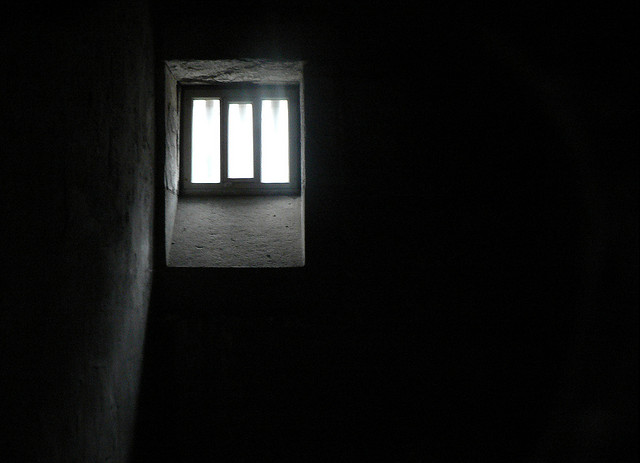 Peers attacked plans for ‘secure colleges’ for young offenders as an ‘untried vision’, ‘undeveloped’ and lacking in detail, as the Criminal Justice & Courts Bill was debated in the House of Lords earlier this week. The Bill proposes replacing young offender institutes with secure colleges. The first ‘pathfinder’ 320-place secure college is due to be opened next to Glen Parva prison, Leicestershire in 2017 to hold girls and boys between 12 and 17 years on land.
Peers attacked plans for ‘secure colleges’ for young offenders as an ‘untried vision’, ‘undeveloped’ and lacking in detail, as the Criminal Justice & Courts Bill was debated in the House of Lords earlier this week. The Bill proposes replacing young offender institutes with secure colleges. The first ‘pathfinder’ 320-place secure college is due to be opened next to Glen Parva prison, Leicestershire in 2017 to hold girls and boys between 12 and 17 years on land.
It costs almost £250m to detain young offenders. The Ministry of Justice reckons that the secure college would provide the same level of security plus greater education for £100,000 less. ‘Nearly three-quarters of young offenders who leave custody reoffend within a year,’ said justice secretary Chris Grayling earlier this year. ‘Clearly the system as it is at the moment isn’t working.’
The driving force behind these reforms was to put education at the heart of young offender rehabilitation. The Bishop of Rochester, the Reverend James Langstaff and bishop to prisons, applauded ‘the overall intention… to establish somewhere that is primarily an education facility but with detention aspects’.
However peers lined up to attack a lack of substance surrounding the concept. In particular, Lord Ramsbotham, former chief inspector of prisons, damned the plans as an ‘untried vision’. He called the proposals ‘so undeveloped’ that it was ‘both unreasonable and irresponsible of the Government to expect Parliament to rubber-stamp it until it knows more’. The Earl of Listowel confessed to knowing ‘so little detail in what the Minister is proposing that I can see many very poor outcomes arising from it’.
‘I entirely accept that the proposed secure college is a possible solution to the problem but unlike the Government, as expressed in the impact assessment, I contend it is neither the right nor the only one,’ said Ramsbotham
‘The Government has presented no evidence it has tested or costed the means by which it is anticipated improvements in education and training will be realised, giving it a benchmark which to judge competitive bids or to support its claim it will instil in young people – many with dreadful records of exclusion from and poor attainment at school – a commitment and desire for continued engagement in learning.’
Lord Ramsbotham
Two alternatives were advanced by Lord Ramsbotham. The first alternative was the ‘secure foundation’, which provides each young offender with long-term contact with an adult, to assist with education, job training, healthcare and substance abuse treatment. There would also be a hostel for the homeless and low-level custody centre, which was being piloted next year in Haringey. The second alternative was Diagrama, a non-profit organisation which has been successfully operating in Spain for more than 20 years. Diagrama had a child-centred ethos which Ramsbotham believed would benefit youth offenders in the UK.
Justice minister Lord Faulks defended the proposal and argued that education was a key to cutting offending with secure colleges designed to ‘foster a culture of educational development and provide enhanced rehabilitative services’.






